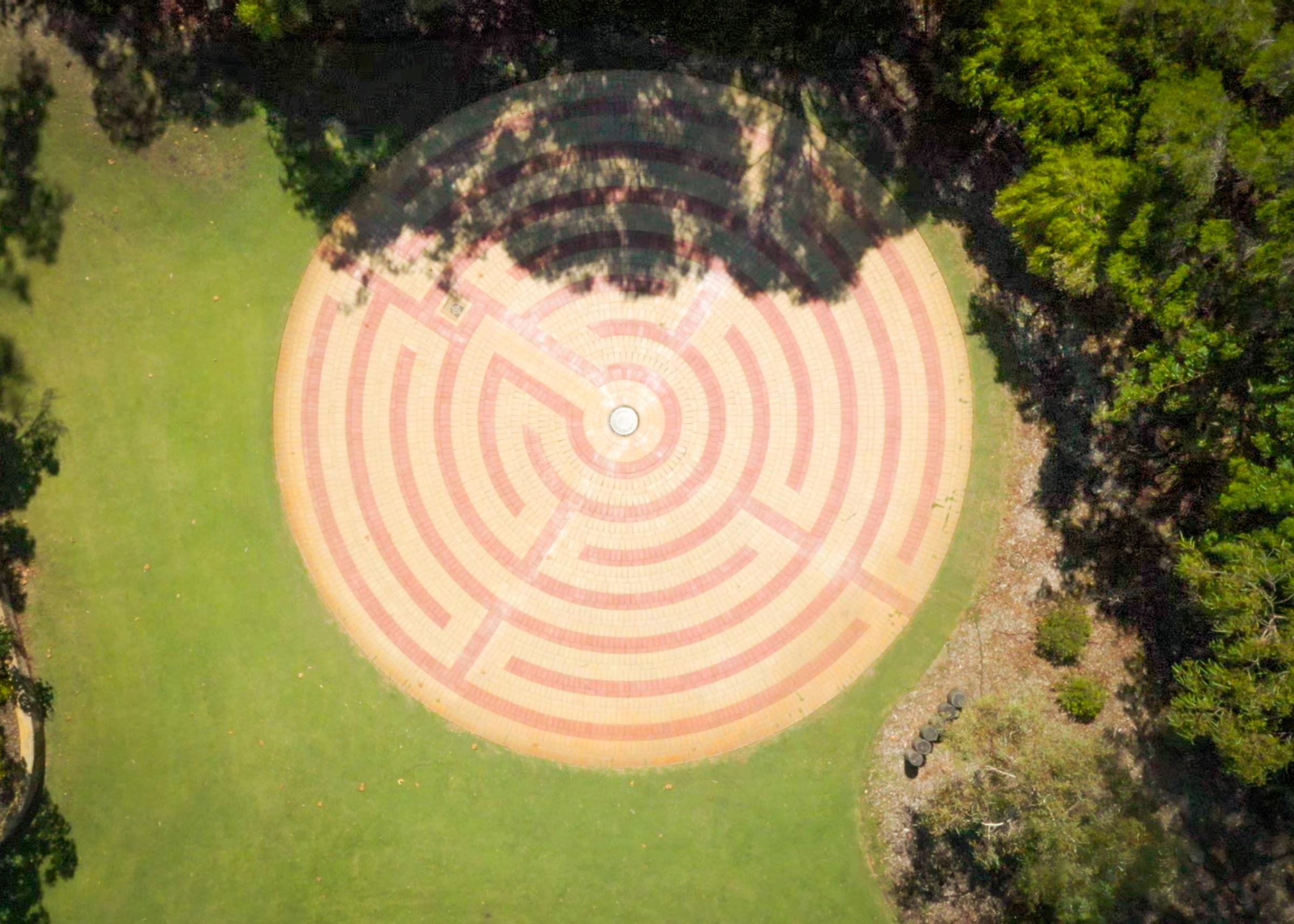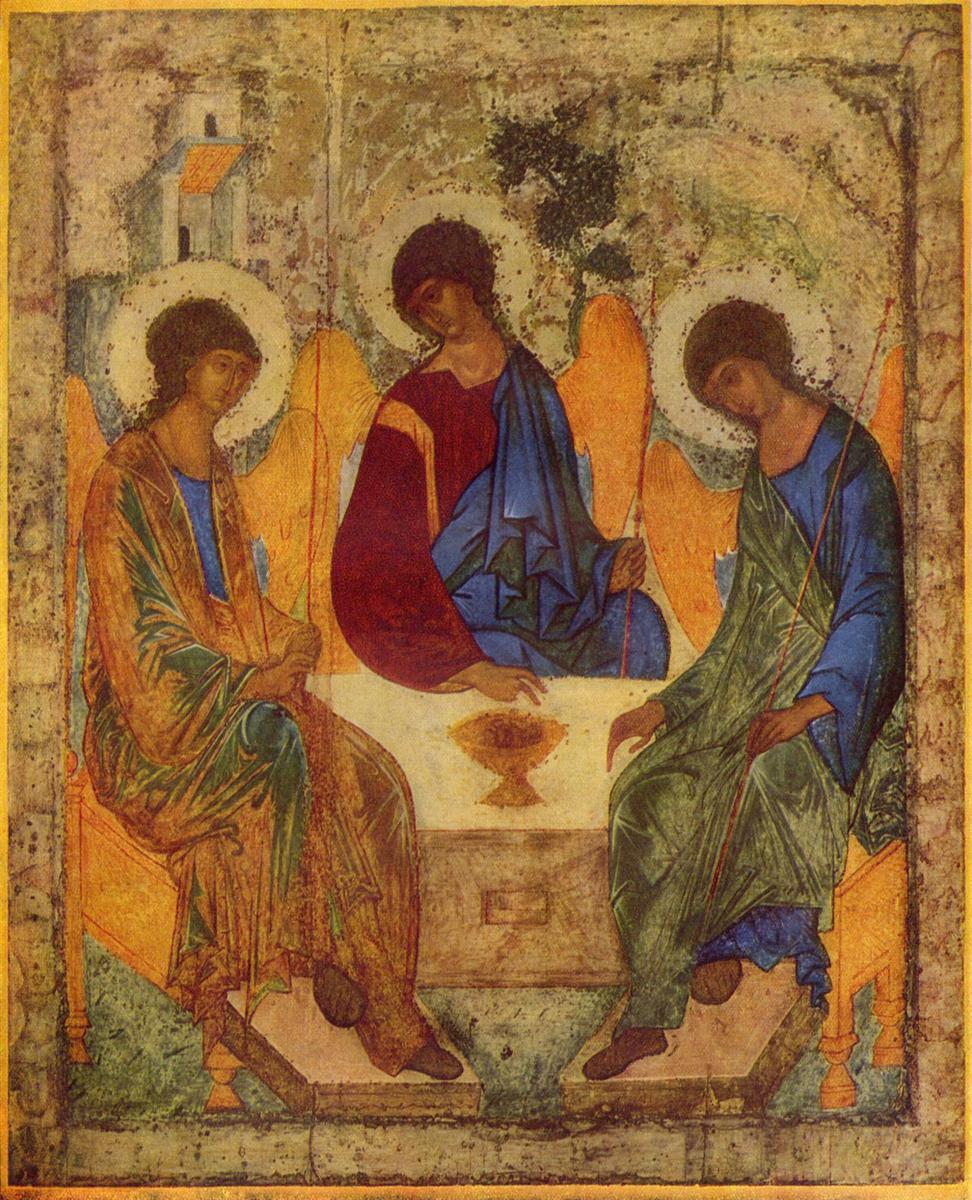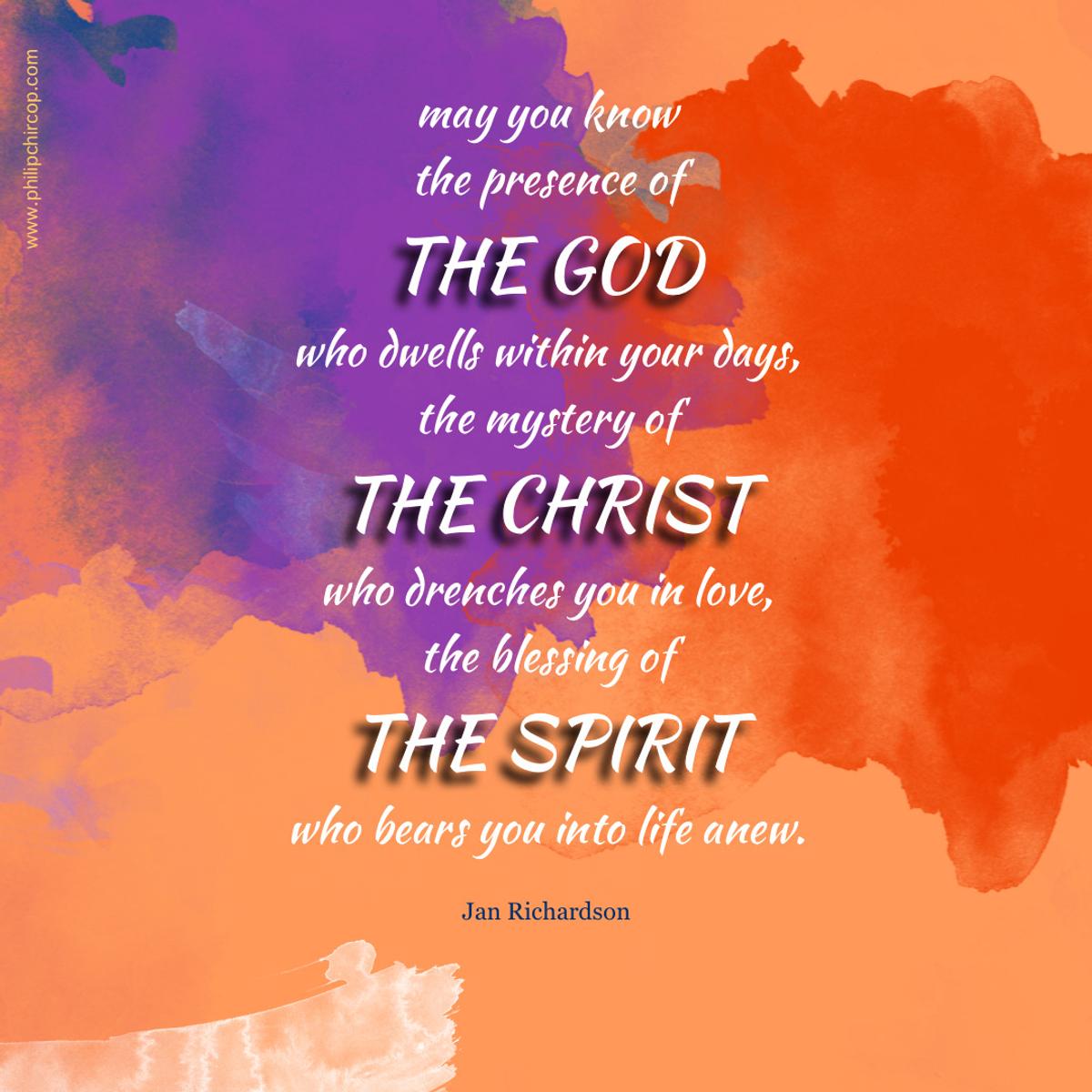Liturgy

Community Liturgy
Thank you to the students in Year 8 as well as those in the choir who arrived at school very early this morning to prepare a Liturgy of the Word for the feast of the Trinity. The short liturgy is available on video below.
Sunday Mass at the Cathedral continues to be live-streamed each Sunday at 11:00am and is also available afterwards. Please follow the link for details.
GOOD NEWS for the feast of the Trinity
The reflection for this Sunday’s Gospel is a homily by Jesuit priest, Fr Richard Leonard. Fr Richard Leonard SJ is the Director of the Australian Catholic Office for Film and Broadcasting, is a member of the Australian Catholic Media Council and is author of Preaching to the Converted, Paulist Press, New York, 2006.
Years ago I was asked to take a parish-based catechetics class for children from a government primary school. I started by trying to work out how much the children knew about the basics. I asked, ‘When we make the sign of the cross, what do we say?‘ ‘Father, Son and Holy Spirit’ came the firm reply. So far so good! I tried upping the bar. ‘What do we call the Father, Son and Holy Spirit?’ There was complete silence. I tried another track. ‘What do you think of when you make the Sign of the Cross?’ There was an awkward silence and then a bright little boy cheerily said, ‘The old man, the young fella and the bird!’
No one can blame those children for the poverty of their images of the Trinity. Many older Catholics have similar images from paintings and holy pictures. The mystery of the Trinity means that in whatever way we portray God as Father, Son and Spirit it will always be inadequate and incomplete. No one has ever seen God or the Holy Spirit. No one has a portrait of Jesus. All the images and words we use for the Trinity are more a reflection of our faith than the final word about God. God is always more than any name we use or any concept we have. The special insight into God we celebrate today is that relationships are at the very centre of who God is.
It took the early Christians four hundred years to fully grasp what Jesus was on about when he spoke of his relationship to the Father and Spirit. They struggled to understand how and why God would have three faces and yet exist as One Being – love as One, act as One. They settled the ‘how’ of the Trinity’s nature by teaching us that the persons of the Trinity are co-equal, co-substantial and co-eternal. They settled the ‘why’ of the Trinity by reflecting that their experience of the Father, Son and Holy Spirit was an encounter of love. They knew the core of God was not an idea or a principle, but was a loving relationship. Furthermore, the early Christians knew that they were invited into this relationship.
What was true for them is true for us. Think about this for a minute: we believe that the God who creates, redeems and sustains the world seeks us out and invites us into a loving relationship. This is what gives us our greatest dignity and urges us on to share this message with everyone we meet. What a privilege! What an invitation! What a God!
It also follows that if relationships are at the core of God then, for those of us who accept the invitation into the Trinity's embrace, relationships are meant to be our core business too. We are not to be isolated believers or private disciples. The degree to which we understand today's feast will be shown in the care we take in our many and varied relationships, be they social, intimate, professional, civic or international.
Every time we do anything to form new and good relationships, mend those which are broken, help other relationships to be deeper and richer or just enjoy the ones we have, we discover one thing: Trinity Sunday is a moveable feast.
© Richard Leonard SJ


